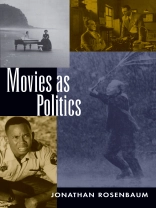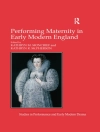In this new collection of reviews and essays, Jonathan Rosenbaum focuses on the political and social dynamics of the contemporary movie scene. Rosenbaum, widely regarded as the most gifted contemporary American commentator on the cinema, explores the many links between film and our ideological identities as individuals and as a society. Readers will find revealing examinations of, for example, racial stereotyping in the debates surrounding
Do the Right Thing, key films from Africa, China, Japan, and Taiwan, Hollywood musicals and French serials, and the cultural amnesia accompanying cinematic treatments of the Russian Revolution, the civil rights movement, and the Vietnam War. From
Schindler’s List, Star Wars, Pulp Fiction, Forrest Gump, The Piano, and
Ace Ventura: Pet Detective to the maverick careers of Orson Welles, Jacques Tati, Nicholas Ray, Chantal Akerman, Todd Haynes, and Andrei Tarkovsky, Rosenbaum offers a polemically pointed survey that makes clear the high stakes involved in every aspect of filmmaking and filmgoing.
In this new collection of reviews and essays, Jonathan Rosenbaum focuses on the political and social dynamics of the contemporary movie scene. Rosenbaum, widely regarded as the most gifted contemporary American commentator on the cinema, explores the many
Table of Content
Acknowledgments
How to Live in Air Conditioning
One The Politics of Form
Language, Representation, Narrative
Say the Right Thing (DO THE RIGHT THING)
Interruption as Style: Bufiuel’s THE DISCREET CHARM OF THE BOURGEOISIE
Polanski and the American Experiment (BITTER MOON)
Utopian Space and Urban Encounters
Tati’s Democracy
His Mistress’s Voice: Akerman’s NIGHT AND DAY
Seen and Unseen Encounters: Kieslowski’s RED
Chance and Control
Altman and the Spirit of Improvisation (CALIFORNIA SPLIT)
Lies of the Mind (TALKING TO STRANGERS)
Classification and Genre: Musical Ghettos
On LATCHO DROM
Four Books on the Hollywood Musical
Two Entertainment as Oppression:
The Hollywood Apparatus
Entertainment as Oppression
Missing the Target
Spielberg’s Gentiles (SCHINDLER’s LIST)
The Solitary Pleasures of STAR WARS
Jack Reed’s Christmas Puppy: Reflections on REDS
A Perversion of the Past (MISSISSIPPI BURNING)
Circle of Pain: The Cinema of Nicholas Ray
Vietnam, the Theme Park (HEARTS OF DARKNESS:
A FILMMAKER’S APOCALYPSE)
Sexual Discourse (THE PIANO)
Hollywood Radical (MALCOLM X)
ACE VENTURA Reconsidered
The World According to Harvey and Bob (SMOKE, THE GLASS SHIELD)
Stupidity as Redemption (FORREST GUMP)
Allusion Profusion (ED WOOD, PULP FICTION)
Three I Issues of Ideology
Alternatives
The Problem with Poetry: Leos Carax
No Stars, a Must-See (THE PLOT AGAINST HARRY)
The Rattle of Armor, the Softness of Flesh: Bresson’s LANCELOT DULAC
The Functions of a Disease (SAFE)
England on the Inside: The Films of Mike Leigh
Political Subjects
The Significance of Sniggering: Zwigoff’s CRUMB
Jean Eustache’s LA MAMAN ET LA PUTAIN
Film Writing Degree Zero: The Marketplace and the University
Tribal Trouble (Atom Egoyan’s CALENDAR)
Us and Them (BLOOD IN THE FACE)
Other Cinemas
Feudal Attraction (JU DOU)
The Vision of the Conquered (Kurosawa’s RHAPSODY IN AUGUST)
Searching for Taiwan (THE PUPPET MASTER)
Inner Space (Tarkovsky’s SOLARIS)
Tribal Scars (Sembene’s BLACK GIRL)
Alternate Histories
The Seven ARKADINS
TIH-MINH, OUT I: On the Nonreception of Two French Serials
His Twentieth Century: Godard’s HISTOIRE(S) DU CINEMA
Pages from the Endfield File
On Second Thoughts (Marker’s THE LAST BOLSHEVIK)
Index
About the author
Jonathan Rosenbaum is film critic at the Chicago Reader, author of Moving Places (1995) and Placing Movies (1995), both published by California, editor of This is Orson Welles (1993), and a member of the New York Film Festival selection committee.












